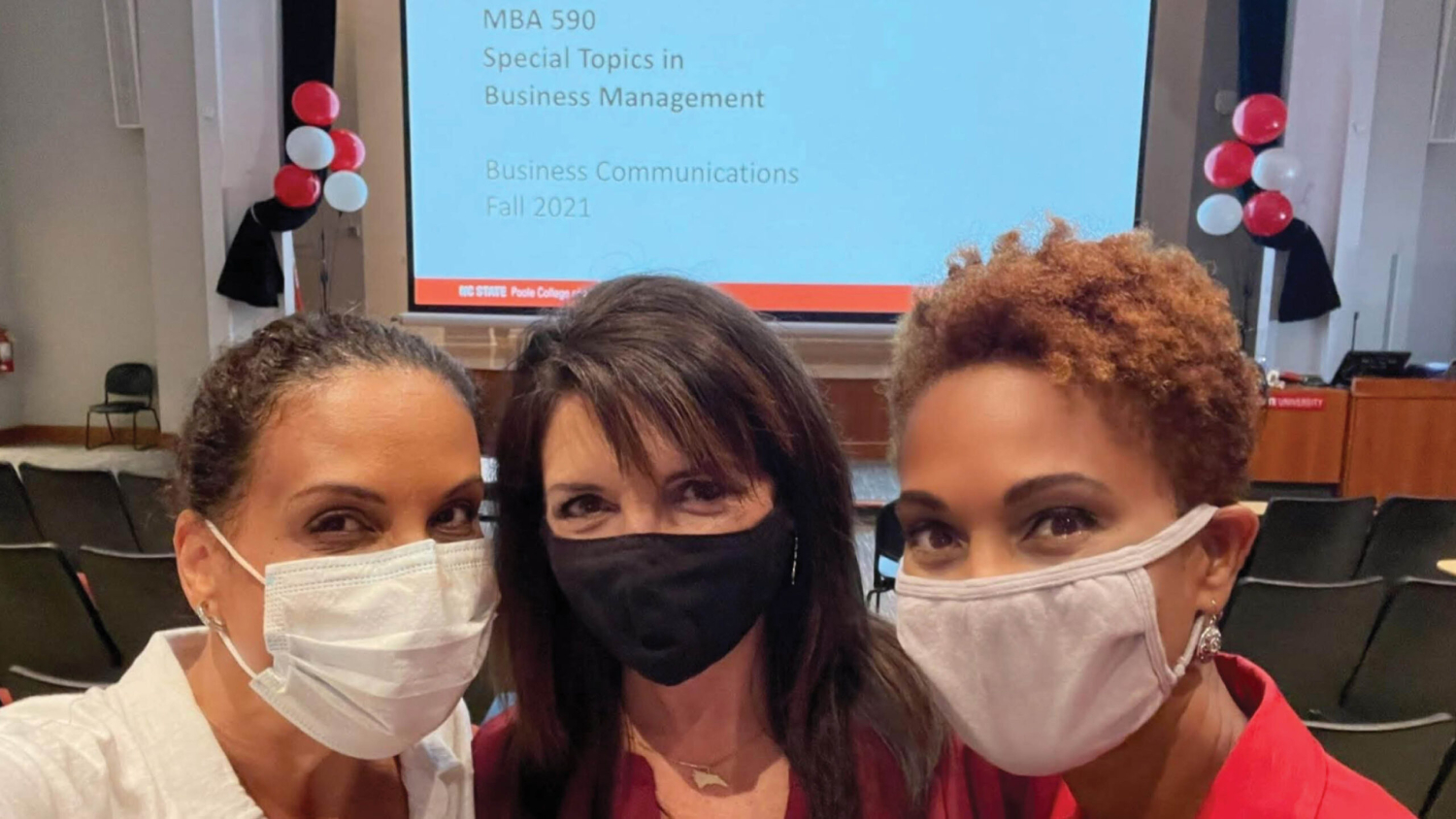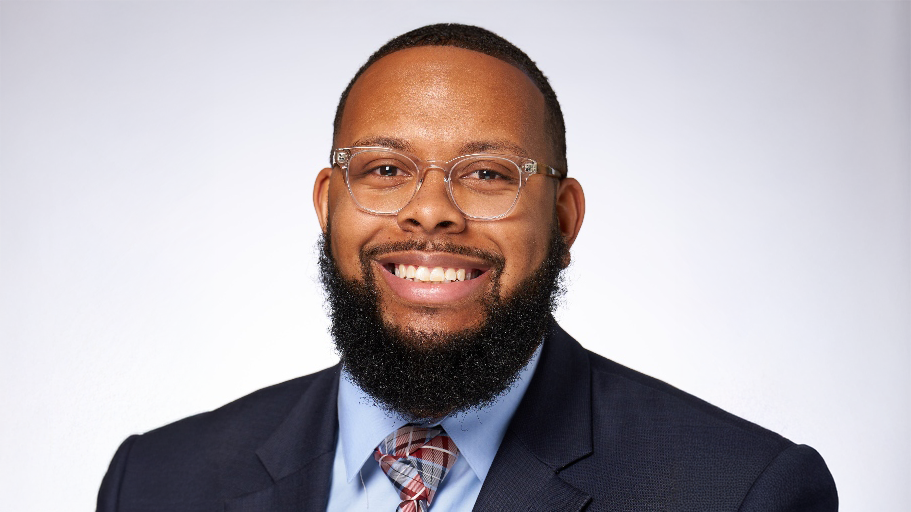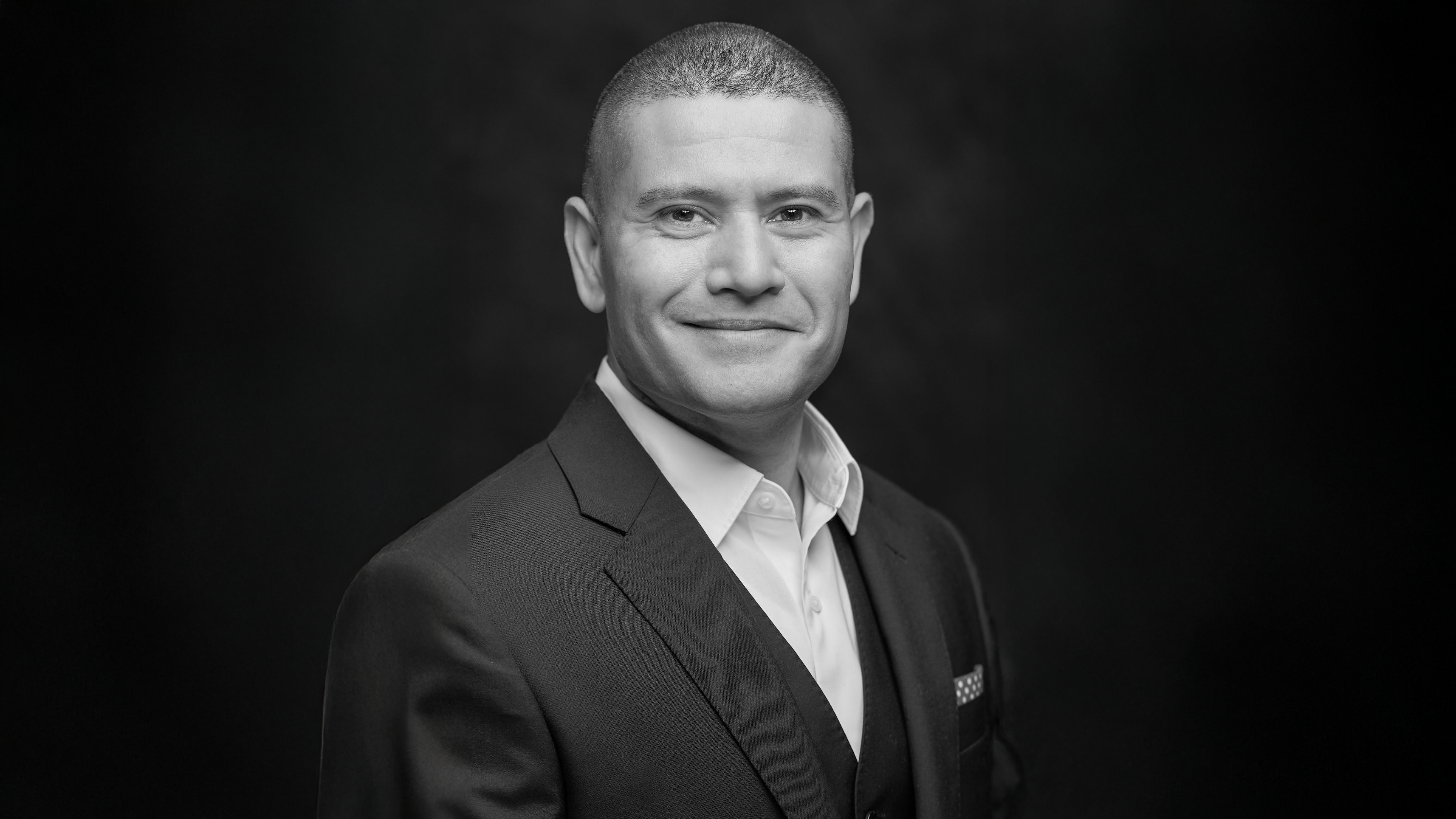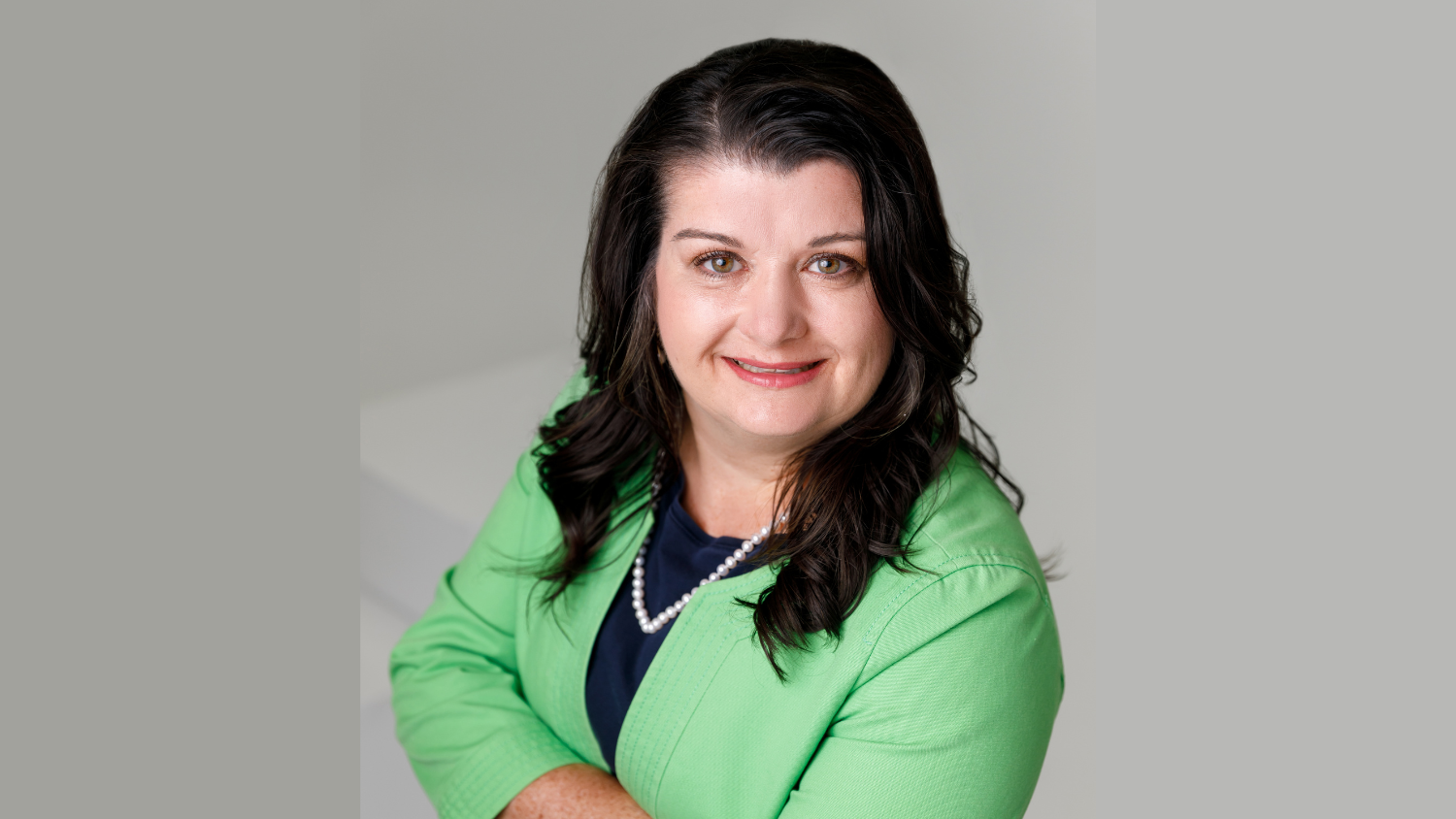Former TV Reporters Move From Newsroom To Classroom

As a TV reporter, news anchor and program host, Valonda Calloway excelled at the fundamentals of connecting with an audience: making the content relatable, animating her voice and facial expressions, speaking concisely and to the point, moving around a bit when possible.
Now, she and two other former WNCN-TV newscasters use the skills they developed as co-hosts and co-anchors to co-teach a Jenkins MBA course this semester, Special Topics in Business Management — Business Communications.

The message development and presentation competencies students gain in the course “will set them apart from people who don’t have these skills. No matter what it is you’re trying to get across, you have to communicate it in a way that makes people care, whether you’re selling something or recruiting someone,” Valonda says. “And we’re teaching them how to do that.”
In the course, the instructors focus on the storytelling approach they used in journalism to engage an audience.
“As in TV news, the who, what, where, when and why apply in business as well.”
She and fellow instructors Sharon Delaney McCloud and Melanie Sanders worked together at Raleigh-based WNCN-TV. Melanie and Sharon were co-anchors before Sharon left to start a corporate training and video production company, now known as Walk West. Sharon later returned to WNCN part time to host the station’s “My Carolina Today” (renamed “My Carolina”) segment with Valonda.

Sharon and Melanie taught the class in the spring this year and recruited Valonda to join them this fall when enrollment increased from 31 to 48 students. They each teach about 15 students in separate campus classrooms and confer regularly about the course.
The instructors call effective communication a “power skill,” not a soft skill.
“Communication is one skill that can never be completely attained. You have to always work at it,” Sharon says. “Storytelling for business is absolutely essential. You don’t move hearts and minds with charts, graphs and spreadsheets…Whether it’s formal presentations, one-on-ones or brainstorming with your colleagues, communication needs to be prioritized. I’m so glad Jenkins realizes how important it is.”
In the increasingly global context of business, clear communication is crucial as people of diverse backgrounds, cultures and languages work together.
Drawing from the instructors’ TV backgrounds, the course guides students in several aspects of communication in business presentations, including content, body language and vocal delivery.
As a journalist, Melanie always anticipated the unexpected and, like many in broadcast news, she often was a little nervous before she went on air. She coaches students to use any nervousness they feel to create a sense of excitement that makes their communication more engaging.
“You learn as a newscaster how to pace yourself as you’re speaking, recover from a mistake, and use pauses appropriately…maneuver the unexpected,” she says. “Now we pass on those vital tips to our students.”
The instructors pursued journalism because of their intense curiosity and a deep interest in people and sharing their stories. Valonda, who grew up watching TV news with her family after dinner each night, always wanted to be a newscaster. Each worked at various stations before ending up together at WNCN.
And all of them have transitioned from TV since then.
Sharon is vice president of professional development at Walk West, a Raleigh-based digital marketing agency whose work includes student recruitment for Poole College of Management. Melanie is director of video production and also leads professional development trainings at Walk West.

Valonda owns ValCal Media LLC, where she is a presentation coach, TV host and voice-over artist in the Raleigh area.
Why teach at NC State? To share their expertise in effective communications and, for Melanie, fulfill a longtime dream of teaching.
Moving from the newsroom to, now, the classroom, “It’s not that different. I’m just helping people tell their stories better,” Sharon says.
As students learn to tell their stories better, they impress the instructors with their commitment and desire to succeed.
“I have enjoyed seeing the lightbulb going off with these students. I’ve watched their videotaped presentations and have seen the growth from the very first time they stood in front of the class and spoke, to now. They are paying attention.”
At the beginning of the course, students don’t want to be the first to speak in front of the class. The instructors call on people to give their presentations because students won’t volunteer.
Eventually, the dynamic changes.
“One of the things that really warmed my heart was that at the end of the course last semester, just about everybody raised their hand to go first at the final presentation. Seeing that transition from being nervous to being confident, we feel successful at that point,” Melanie says. “Not that they’re perfect, but they’re confident. They enjoy presenting. It’s huge.”
This post was originally published in Jenkins MBA News.
- Categories:


